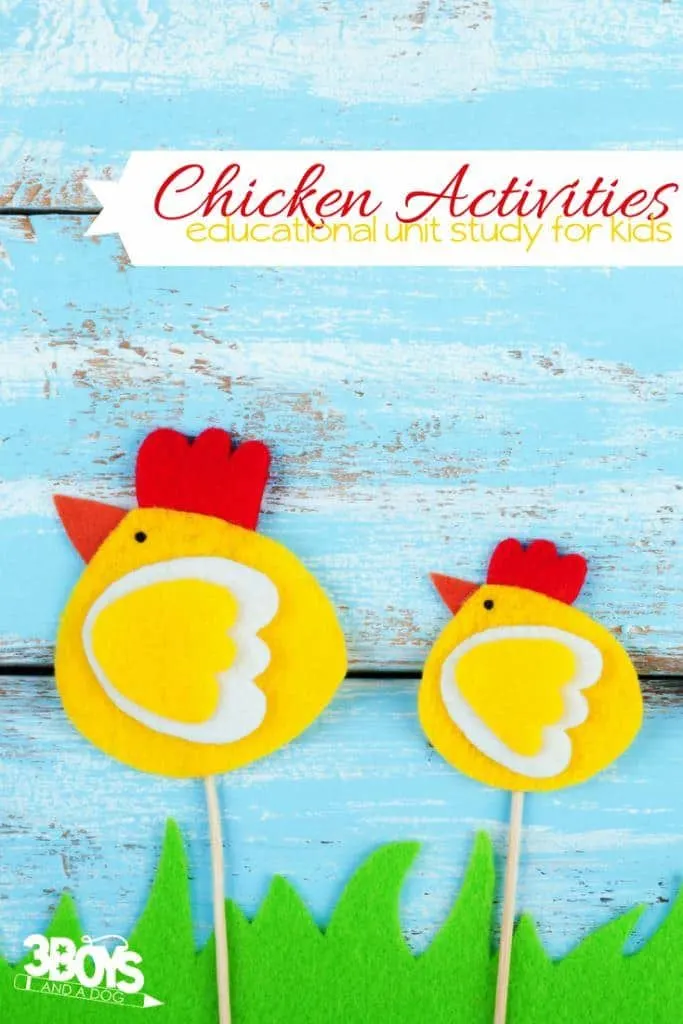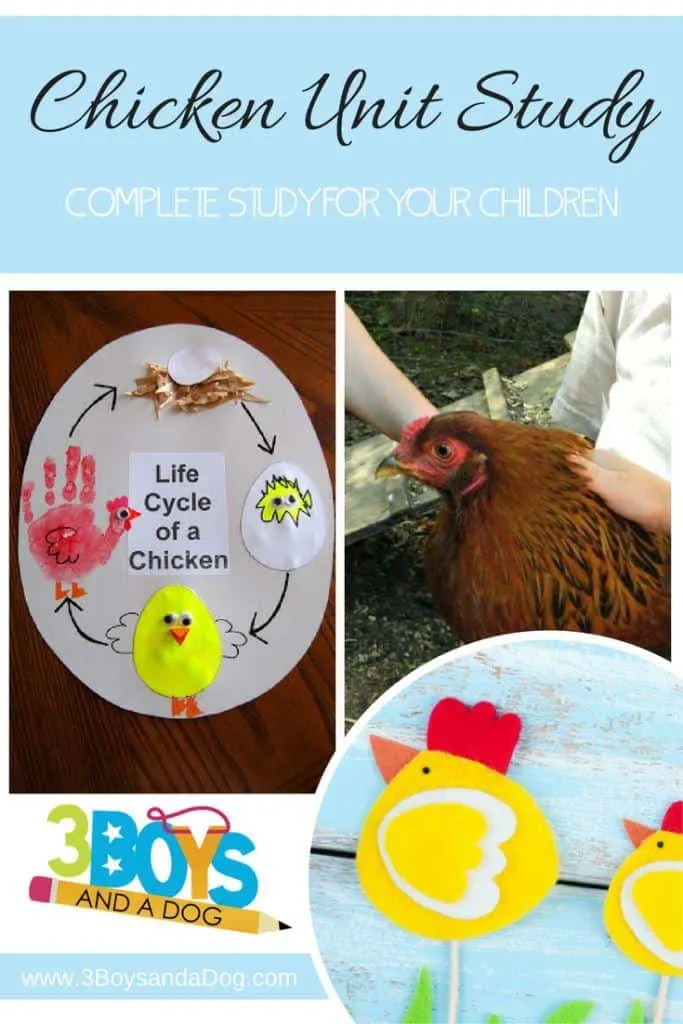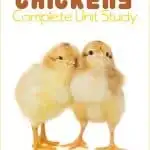Each month, I will send in a neat unit study that coordinates with fun and sometimes wacky holidays for the upcoming month. In addition to tips, ideas, and thoughts, I will also include links to some fun things to learn about in your homeschool. The kids will love this Farm Animal Unit Study.
Don’t homeschool? No big deal! Spend time with your kids during the weekends and on holidays doing these fun things and teach them something in the process!
This free homeschooling Chickens Complete Unit Study is full of videos, books, and activities for September’s National Chicken Month! Themed unit studies are so much fun!
September is… Chicken Month!
All items in the list below are free unless otherwise stated. *If it is underlined, you can click it!
Month:
September
Unique Holiday
Chicken Month
Specific Days that Coordinate:
- September 2nd – National Beheading Day: Yes, it is awful, but you could learn about Henry VIII today. I couldn’t resist putting this one because I always tell my kids “Quit running around like a chicken with it’s head cut off!”
 Beheading Chickens… it just fit.
Beheading Chickens… it just fit. - September 5th – Cheese Pizza Day: Have you ever had chicken on your pizza? OH MY! It is delicious!
 Here’s a recipe for a homemade Chicken Ranch Pizza AND a coupon for money off a pizza at Pizza Hut.
Here’s a recipe for a homemade Chicken Ranch Pizza AND a coupon for money off a pizza at Pizza Hut. - September 10th – Swap Ideas Day: Let me share some of my favorite ways to cook chicken with you! Maybe you’ll find a new family favorite!
- September 18th – National Cheeseburger Day. Spare those chickens today and fire up the grill! Here’s a great slaw burger recipe!

Fun Things to Do This Month:
- Tracing Punctuation! With CD – Disney’s Chicken Little
- Learn some Meat and Poultry words in German and French!
- Learn some fun chicken facts
This video is adorable! Let your kids watch these 10 Incredible Facts about Chickens:
Free Printables for this month:
- Chicken Math Division
- Chicken Coloring Pages
- Printable Life Cycle Cards Natural Beach Living
Neat recipes to add to the plan this month:

Crafts, Lessons, and More:
- Life Cycle of a Chicken Craft I Heart Crafty Things
- Chicken Life Cycle Sensory Bin Science Sparks
- C is for Chicken Must Have Mom
- Chicken & Chicks Craft Powerful Mothering
My Favorite Chicken Unit Study Resources:
The following items contain affiliate links – they are products we LOVED!
- LEGO Set #10169 Chicken Chicks
- Safariology the Life Cycle of a Chicken
- Chick Life Cycle Exploration Set – this is the cycle inside the egg
- Anatomy of Chicken Peel and Stick Wall Decal
Books to Read this Month:
- Egg in the Hole (Touch-and-Feel)
- Chicken Soup for Little Souls Reader Greatest Gift of All (Chicken Soup for the Soul)
- Faith, Hope and Chicken Feathers (An Avon Camelot Book)


